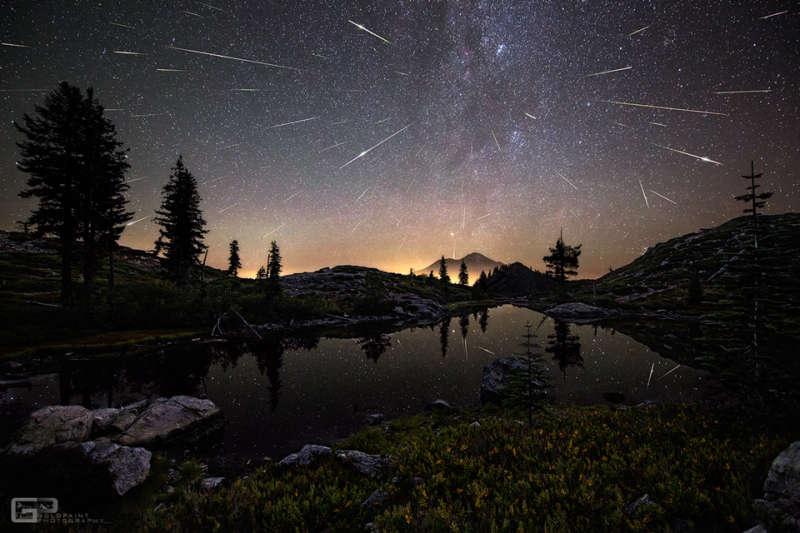 |
Астронет: Астрономическая картинка дня Персеиды над горой Шаста http://www.variable-stars.ru/db/msg/1367026/eng |
Credit & Copyright: Brad Goldpaint
(Goldpaint Photography)
Explanation:
Where are all of these meteors coming from?
In terms of direction on the sky, the pointed answer is the
constellation of Perseus.
That is why the meteor shower that peaks later this week is known as the
Perseids -- the
meteors
all appear to came from a
radiant toward Perseus.
In terms of parent body, though, the
sand-sized debris
that makes up the Perseids meteors come from Comet Swift-Tuttle.
The comet follows a well-defined orbit around our Sun,
and the part of the orbit that
approaches Earth is
superposed in front of the Perseus.
Therefore, when Earth crosses this orbit, the
radiant point of falling debris appears in Perseus.
Featured here, a composite
image
containing over 60 meteors from last August's
Pereids meteor shower shows many
bright meteors that
streaked over
Mount Shasta,
California, USA.
This
year's Perseids holds promise to be the best
meteor shower of the
year.
Transparent Science:
Browse 1,300+ codes in the Astrophysics Source Code Library
Authors & editors:
Robert Nemiroff
(MTU) &
Jerry Bonnell
(USRA)
NASA Web Site Statements, Warnings,
and Disclaimers
NASA Official: Jay Norris.
Specific
rights apply.
A service of:
LHEA at
NASA /
GSFC
& Michigan Tech. U.
